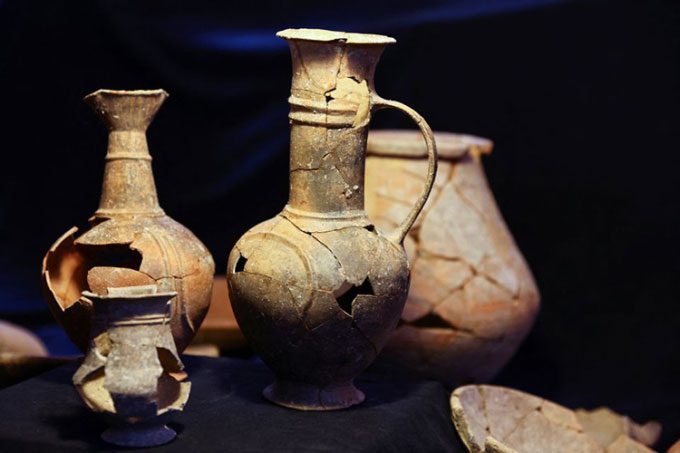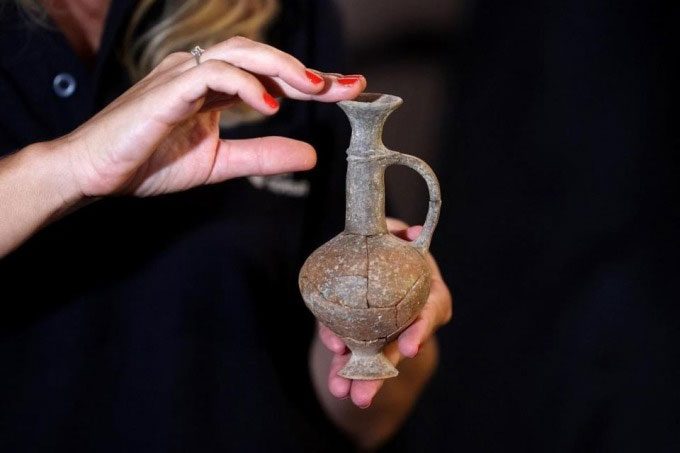Israeli Archaeologists Discover One of the Earliest Pieces of Evidence for Opium Use in Ancient Canaanite Civilization.

Opium containers excavated in Israel. (Photo: Ronen Zvulun)
According to a study published in the journal Archaeometry on September 20, the jars, dating back to the Late Bronze Age around the 14th century BCE, were found in a Canaanite burial site in Tel Yehud, central Israel. They resemble inverted poppy flowers and may have been used in burial rituals and offerings to the spirits.
Archaeologists from the Weizmann Institute of Science, Tel Aviv University, and the Israel Antiquities Authority (IAA) analyzed organic residues in eight jars and confirmed that they contained opium. Some of these jars were locally produced, while others originated from the island of Cyprus.
However, the research team is uncertain about the exact ways in which the Canaanites used opium in their burial rituals.

Canaanite opium jar resembling an inverted poppy flower. (Photo: AFP)
“It is possible that during the ceremony conducted by family members or a priest representing them, participants attempted to call upon the spirits of deceased relatives to express a request and enter an ecstatic state using opium,” said archaeologist Ron Beeri from the IAA.
Additionally, opium may have been placed beside the corpse to assist the soul in escaping the grave, preparing for a reunion with their loved ones in the afterlife.
In 2020, researchers also found traces of cannabis from the 8th century BCE on an altar in a 3,000-year-old temple of ancient Jews in the Negev Desert.


















































